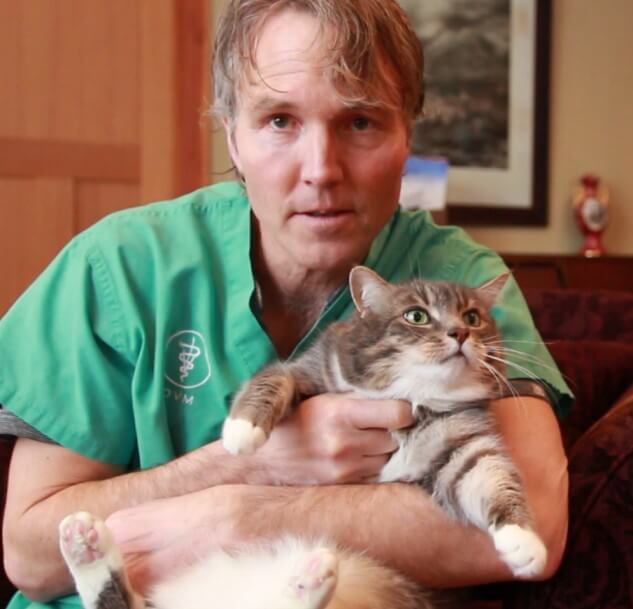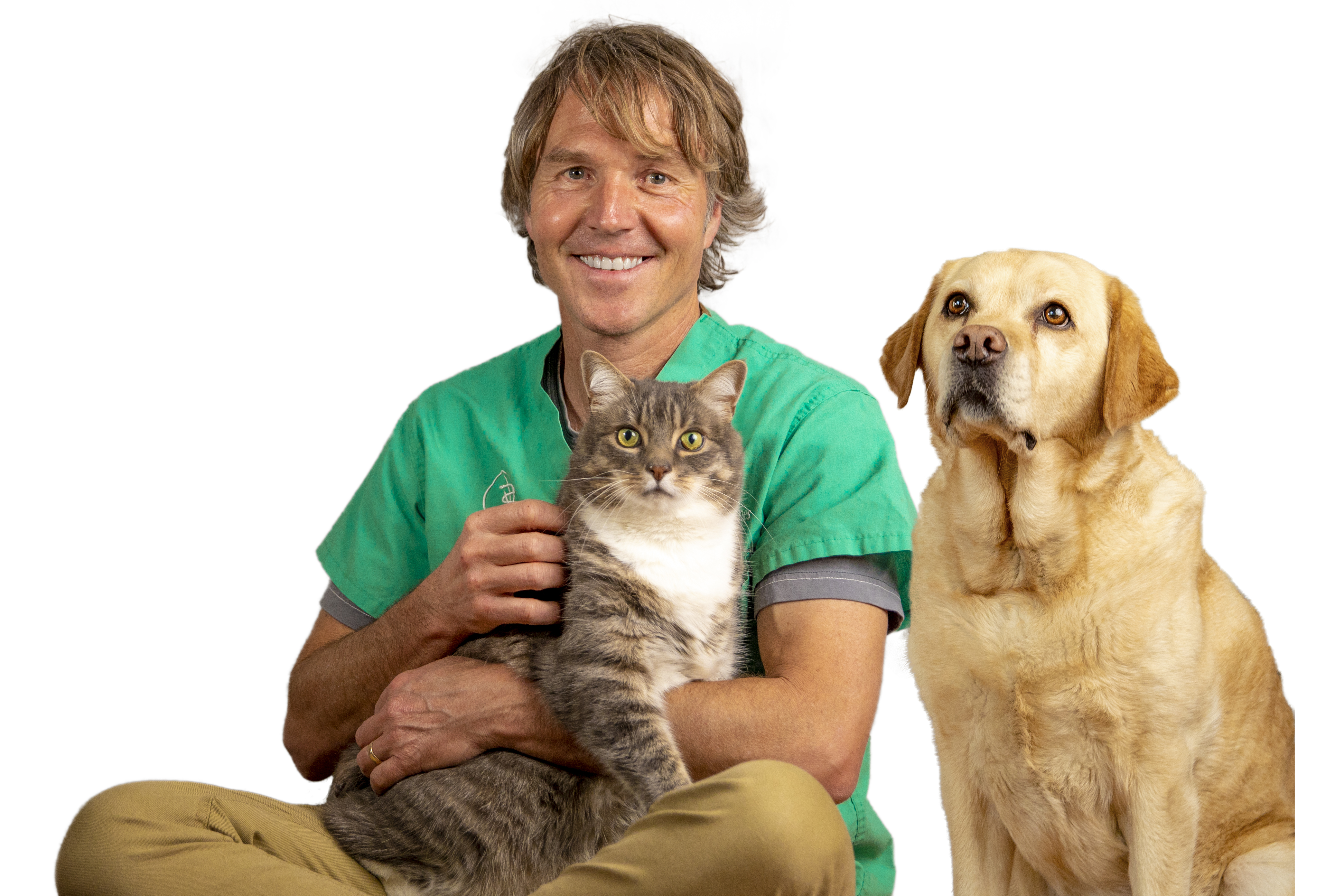Obesity epidemic: Are we loving our pets to death?
A recent study showed that maintaining a dog’s lean body condition extended its median life span by 15%.
For dogs and cats, the problems associated with being overweight or obese are numerous…
Probiotics and Colostrum may be beneficial in helping your dog or cat maintain a healthy weight.
They are in our dog and cat supplements: https://shop.veterinarysecrets.com/supplements.html
I do need to confess that my last cat Murray was a little on the ‘plump’ side… it’s hard to say no.

Obesity and How to Speed Weight Loss
Obesity is rapidly becoming the most common veterinary condition affecting our dogs and cats. Estimates vary, but one survey found 53 percent of adult dogs and 55 percent of cats to be classified as overweight or obese. That equals 88.4 million pets that are too heavy according to veterinarians.
Overweight pets are at risk for serious health problems, such as Cancer, especially intrabdominal cancers, diabetes, liver disease, arthritis, skin disorders, heart disease, FLUTD (Feline Lower Urinary Tract Disease), Immune system depression, High Blood Pressure and generally have a shortened life span.
Weight Loss
In general, a good goal to aim for is 1-2% of the body weight per week. In practice I would typically calculate 15% weight loss, and aim for that in 3-4 months.
Rapid weight loss can lead to rapid weight return, liver disease, and in some cases even hepatic lipidosis.
FIRST… CUT the CARBS
I have always had the best results on elevated protein diets – Raw, Homemade, Canned and LESS KIBBLE.
Cut out the treats, especially the high carbohydrate one, commit to exercising your dog twice daily for at least 30 minutes, and feed only the measured amount of food based on your dog’s/ cat’s weight.
Supplements
Carnitine. This has been shown to speed up weight loss in cats. The dose is 250 mg daily. Carnitine is being included in some weight reduction programs because of its effect on the utilization of fat by the body.
Dehydroepiandrosterone (DHEA), which has been shown to have antiobesity activity in rodents. A recent study at the University of Wisconsin School of Veterinary Medicine demonstrated that dogs receiving DHEA while being on a weight reduction program lost weight faster and had lower cholesterol levels than those dogs who were on a weight reduction program alone.
Coenzyme Q10 is essential for energy production at the cellular level. It has been shown to benefit humans with various heart and muscle diseases. Again, studies of its effect on obese animals are currently underway. It has been shown to be safe, with no adverse effects demonstrated in animal studies according to Nutramax, a company which produces Coenzyme Q10 in an oral form for dogs, cats, and horses.
Green Tea. Has gained popularity for weight loss, it is also a rich source of antioxidants, and safe to give daily. You can give it in the tea form – substitute green tea for your pet’s water, and assess the results in 30 days.
Colostrum. Colostrum has been shown to help with weigh loss by increasing muscle mass. The increased muscle leads to increased metabolism, and loss of fat. Increasing numbers of athletes are using colostrum; it is a safe nutrient to consider adding to your overweight pet’s diet.
Probiotics. These are the healthy bacteria which colonize your intestinal tract, and researchers are finding they are increasingly important for health, and that they may help with weight loss in people and pets. Daily supplements with the probiotic Lactobacillus gasseri SBT2055 may help weight loss in people with obese tendencies, according to new research. The study extends previous findings … which showed LG2055 may reduce fat levels (adiposity) and fat cells in animals".

Best Wishes,
Dr. Andrew
P.S. For some animals it really can be difficult to get them to lose weight… and I DON’T recommend most of the Veterinary ‘Weight Loss’ Diets.
P.P.S. Sometimes the addition of the right supplements can at least help trigger increased metabolism
These include Colostrum and Probiotics which are in our Dog and Cat supplements here: https://shop.veterinarysecrets.com/supplements.html
Juliette, my toy poodle gained an unhealthy weight IMMEDIATELY after her ovaryectomy, after her first heat and before her second. She eats raw, organic, homemade food with no carbs. Her treats are minimal and also dehydrated recipe of the same as the food I make. We exercise, but I realize after reading your article, this weight is the consequence of the spay. I would like to research hormone balancing products, and learned that any hormone replacement therapy is only in preliminary testing and nothing is available-allegedly.